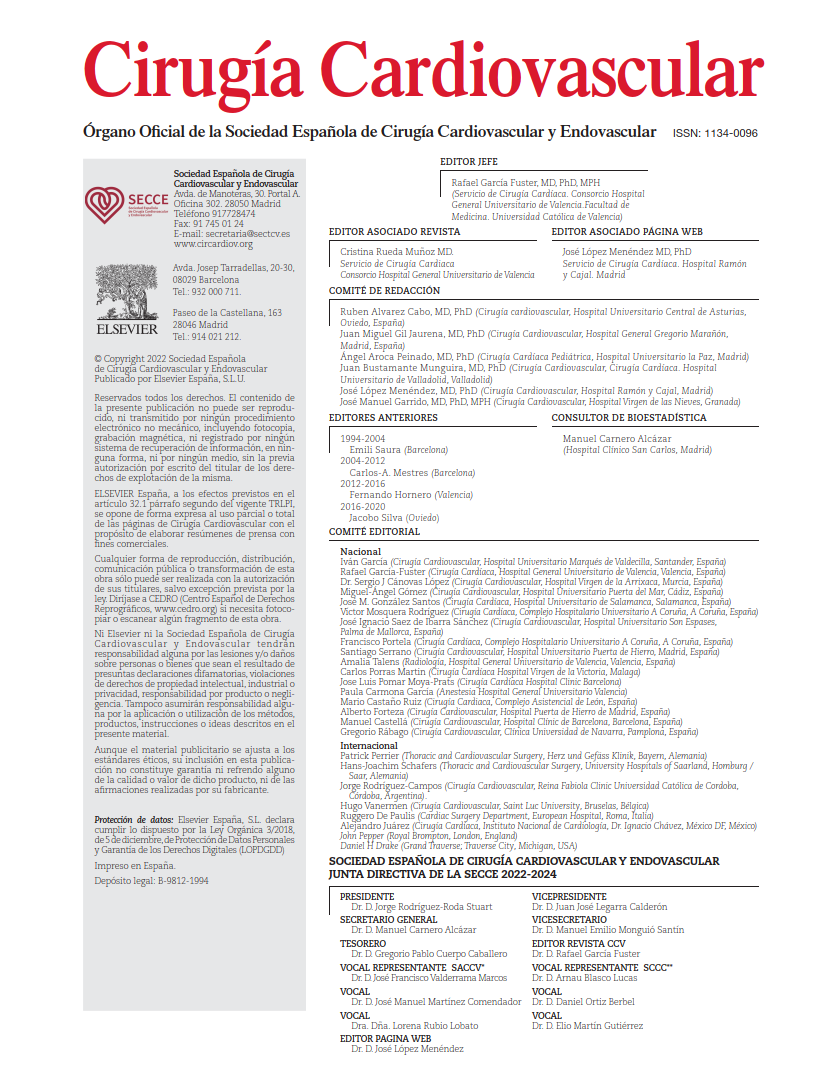
Revascularization in Left Ventricular Dysfunction: A Review of Indications and Surgical Strategies
This scoping review examines indications and surgical strategies for revascularization in patients with severe ventricular dysfunction through an analysis of the most recent evidence.
The choice between a univentricular or biventricular pathway: A binary decision?
Review article on the contemporary management of borderline left ventricles.
Mixing Water and Oil: Consensus on Hybrid Revascularization
Critical analysis of two position papers addressing indications, technical aspects, and clinical management of patients eligible for hybrid myocardial revascularization.
EACTS/STS 2024 Guidelines for the Aortic Organ: Innovations and Key Points
The consensus guidelines by EACTS and STS, published in 2024, address the diagnosis and treatment of acute and chronic aortic syndromes, now recognized as the “aortic organ.”
Is the Heart Team Dispensable in Catheter-Based Aortic Bioprosthesis Implantation Procedures?
Multicenter German Analysis of the Incidence and One-Year Outcomes of Emergency Conversion to Surgical Procedure During Transcatheter Aortic Bioprosthesis Implantation
AUTHEARTVISIT study: the Austrian paradigm
This retrospective observational study, adjusted through propensity score analysis, utilized data from the Austrian National Health System registry to compare mid- to long-term survival in patients treated with surgery or TAVI between 2010 and 2020.
Valvular surgery in infective endocarditis according to frailty risk scales: are data at the service of science or is science at the service of data?
A retrospective study using data from the U.S. National Inpatient Sample (NIS) to analyze patients diagnosed with infective endocarditis, evaluating the impact of valvular surgery according to frailty risk scores.
Conventional extracorporeal circulation versus minimally invasive extracorporeal circulation in cardiac surgery patients: a randomized controlled trial (COMICS)
This international, multicenter randomized controlled trial involved 1,039 adult patients. It compared outcomes in scheduled or urgent cardiac procedures—coronary artery bypass grafting (CABG), aortic valve replacement (AVR), or a combination of both—using either conventional extracorporeal circulation (CECC) or minimally invasive extracorporeal circulation (MiECC).

